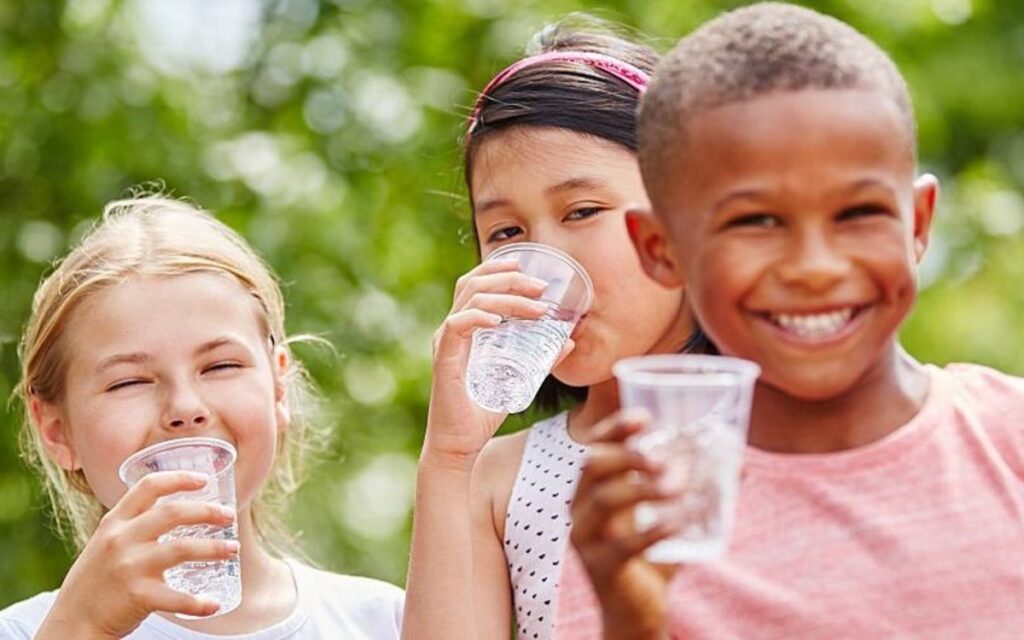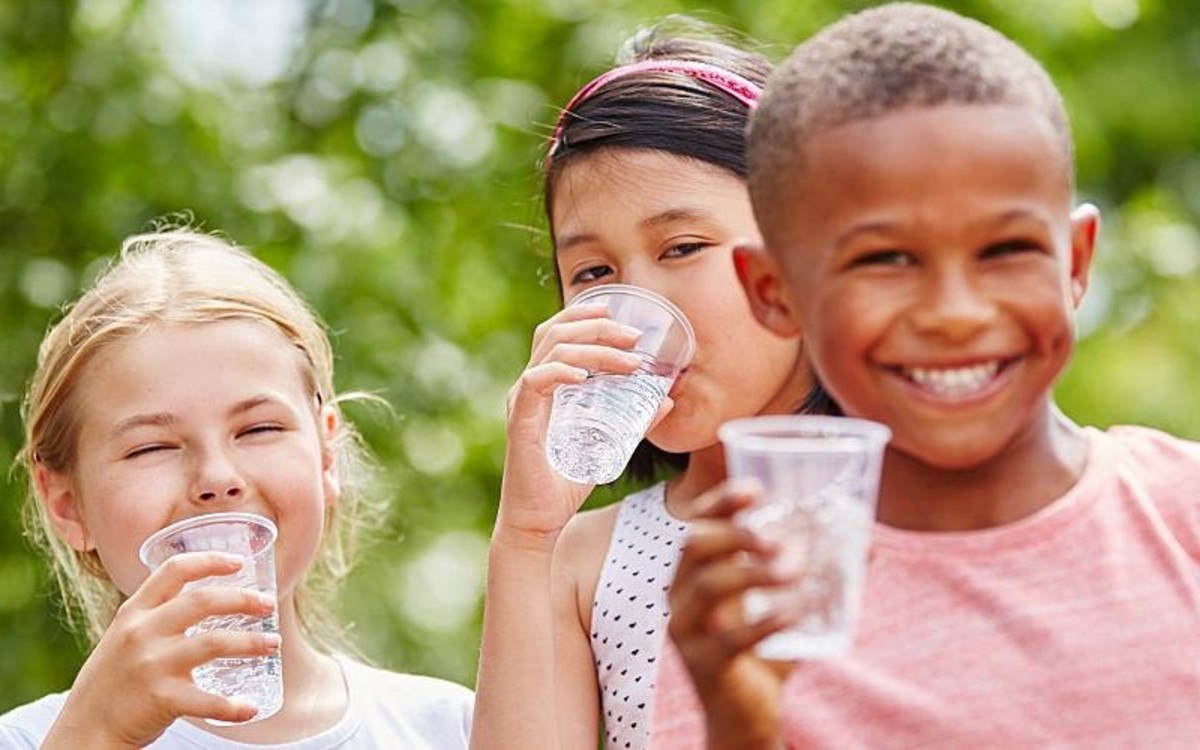
Can Toddlers Have Cold Water? A Comprehensive Guide for Parents
As parents, we constantly evaluate every decision concerning our children’s health and well-being. One common question that often arises, especially during warmer months, is: Can toddlers have cold water? While it might seem like a simple query, the answer involves a nuanced understanding of a toddler’s physiology and potential health implications. This comprehensive guide will delve into the pros and cons of giving cold water to your little one, offering practical advice and addressing common concerns.
Understanding Toddler Hydration Needs
Before addressing the specific question of cold water, it’s crucial to understand the general hydration needs of toddlers. Toddlers, typically aged 1 to 3 years, require adequate fluid intake to support their rapid growth, development, and active lifestyles. Dehydration can lead to various health issues, including constipation, fatigue, and even more severe complications. Therefore, ensuring your toddler stays hydrated is paramount.
Generally, toddlers need about four cups (32 ounces) of fluids per day, including water, milk, and diluted juice. This amount can vary depending on factors such as activity level, climate, and overall health. It’s important to monitor your child for signs of dehydration, such as decreased urination, dark urine, and dry mouth.
The Pros of Giving Toddlers Cold Water
While some parents might hesitate, there are potential benefits to offering cold water to toddlers, particularly during hot weather or after physical activity.
- Hydration and Refreshment: Cold water can be more appealing to some toddlers, encouraging them to drink more and stay hydrated. Its refreshing nature can be especially welcome after playing or being outdoors in the heat.
- Body Temperature Regulation: Cold water can help lower body temperature more quickly than lukewarm water, providing relief from overheating. This is particularly useful during summer months or after strenuous activity.
- Potential Calorie Burning: Some studies suggest that drinking cold water can slightly increase metabolism as the body works to warm the water to its core temperature. While the effect is minimal, it’s a potential added benefit.
The Cons of Giving Toddlers Cold Water
Despite the potential benefits, there are also concerns associated with giving cold water to toddlers. These concerns primarily revolve around potential digestive discomfort and the risk of triggering certain health issues.
- Digestive Discomfort: Cold water can sometimes cause stomach cramps or discomfort in toddlers, especially if consumed quickly or in large quantities. The sudden temperature change can shock the digestive system, leading to temporary discomfort.
- Potential for Sore Throat: While not scientifically proven, some parents believe that cold water can contribute to sore throats or coughs, particularly in children prone to these conditions. This is based on the idea that cold water can irritate the throat lining.
- Reduced Nutrient Absorption: Some traditional beliefs suggest that cold water can hinder nutrient absorption. While scientific evidence supporting this claim is limited, it’s a concern worth considering, especially for toddlers who might already be picky eaters.
Addressing Common Concerns and Myths
Several myths and misconceptions surround the topic of giving cold water to toddlers. Let’s address some of the most common ones:
Myth: Cold Water Always Causes Sore Throats
While some parents associate cold water with sore throats, it’s important to understand that sore throats are primarily caused by viral or bacterial infections. Cold water might exacerbate an existing condition or irritate a sensitive throat, but it’s unlikely to be the primary cause of infection.
Myth: Cold Water Shuts Down Digestion
The idea that cold water completely shuts down digestion is an exaggeration. While it might temporarily slow down the digestive process, it doesn’t halt it entirely. The body is capable of regulating its internal temperature and maintaining digestive function even after consuming cold water.
Myth: All Toddlers React Negatively to Cold Water
Every child is different, and their tolerance to cold water varies. Some toddlers might enjoy it without any adverse effects, while others might experience discomfort. It’s essential to observe your child’s reaction and adjust accordingly.
Practical Tips for Giving Cold Water to Toddlers
If you decide to give your toddler cold water, here are some practical tips to minimize potential risks and maximize the benefits:
- Start Slowly: Introduce cold water gradually, starting with small sips to gauge your child’s reaction.
- Avoid Extremely Cold Water: Opt for slightly chilled water rather than ice-cold water, which can be more likely to cause discomfort.
- Serve with Meals: Giving cold water with meals can help mitigate potential digestive discomfort by slowing down consumption and allowing the body to adjust to the temperature.
- Monitor Your Child’s Reaction: Pay close attention to your toddler’s reaction after drinking cold water. Look for signs of discomfort, such as stomach cramps or complaints of a sore throat.
- Consider Room Temperature Water: If you’re concerned about potential risks, room temperature water is always a safe and effective option for hydration.
Alternatives to Cold Water
If you’re hesitant about giving cold water to your toddler, several alternatives can provide adequate hydration without the potential downsides.
- Room Temperature Water: As mentioned earlier, room temperature water is a safe and readily available option.
- Diluted Juice: Diluting juice with water can make it a healthier and more palatable option for toddlers who might not readily drink plain water.
- Breast Milk or Formula: For younger toddlers, breast milk or formula remains an excellent source of hydration and essential nutrients.
- Water-Rich Fruits and Vegetables: Fruits and vegetables like watermelon, cucumbers, and berries are naturally hydrating and can be a fun and healthy way to increase fluid intake.
When to Consult a Pediatrician
While giving cold water to toddlers is generally safe, it’s essential to consult a pediatrician if you have any specific concerns or if your child experiences persistent digestive issues or other health problems. A pediatrician can provide personalized advice based on your child’s individual needs and medical history.
Also, seek medical attention if your child shows signs of dehydration, such as decreased urination, lethargy, or dry mouth, regardless of whether they have been consuming cold water.
Conclusion: Making an Informed Decision About Cold Water for Your Toddler
So, can toddlers have cold water? The answer is a qualified yes. While cold water can be a refreshing and hydrating option, it’s essential to consider potential risks and individual sensitivities. By understanding the pros and cons, addressing common myths, and following practical tips, you can make an informed decision that prioritizes your toddler’s health and well-being. Remember to monitor your child’s reaction, offer alternatives if needed, and consult a pediatrician if you have any concerns. Ultimately, the goal is to ensure your toddler stays adequately hydrated and healthy, regardless of the water temperature.
Staying informed and observant as a parent allows you to navigate these seemingly small decisions with confidence. Consider your child’s unique needs and preferences, and adjust your approach accordingly. Whether you choose to offer cold water or opt for alternatives, the most important thing is to ensure your toddler receives the hydration they need to thrive. Remember to always supervise your child while they are drinking to prevent choking hazards. And when in doubt, a quick chat with your pediatrician can provide the reassurance and tailored advice you need.
[See also: Toddler Hydration Tips for Summer]
[See also: Signs of Dehydration in Children]
[See also: Best Drinks for Toddlers Apart From Water]

